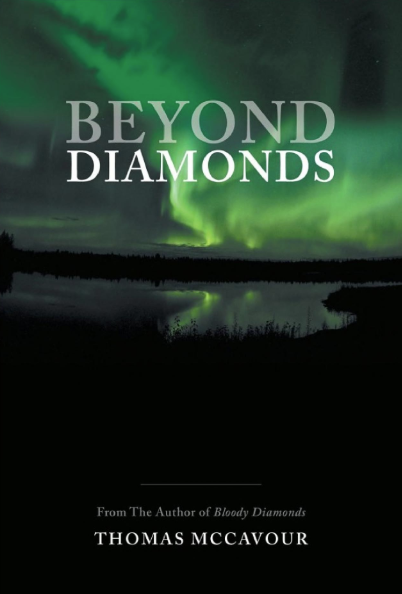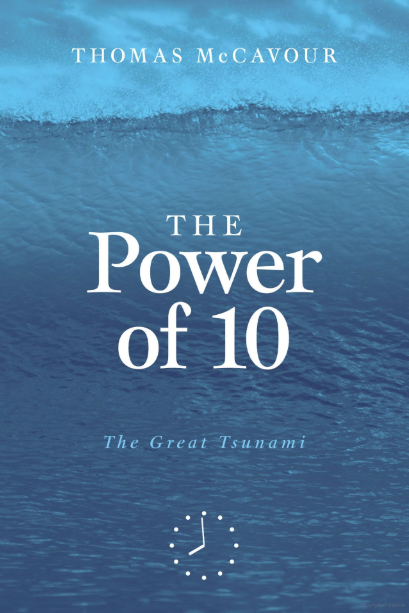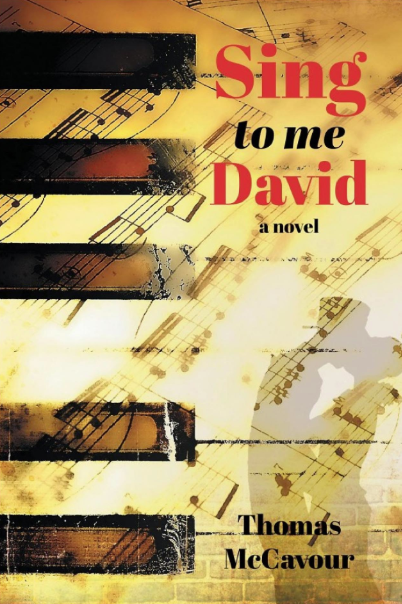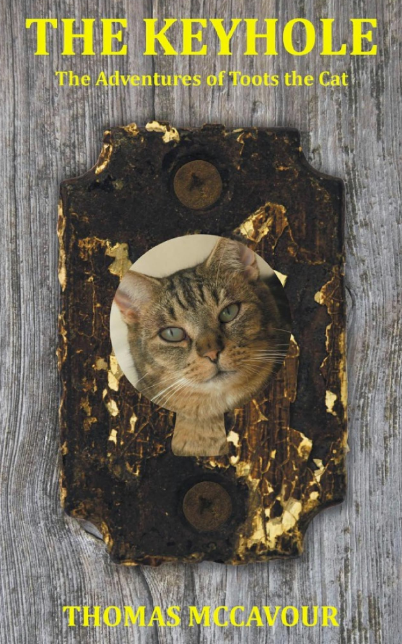Storytellers Series: The Circuitous Route Of Late Bloomers
/The following story is part of our #FriesenPress10 series examining the past, present, and future of self-publishing.
After a decade in the publishing industry, we’ve worked with thousands of authors whose stories and talent never ceases to inspire us. Today, we’re taking a look at the late-blooming FriesenPress authors who began writing later in life. Their belated starts (or returns) to writing remind us that it's never too late to dream a new dream.
For some, writing was initially a passing thought—if considered at all—and for others it was a quixotic dream in their youth. But just as both ebbed out as life progressed, these individuals’ passion for writing flowed back later in life all the same. Now, a lifetime of stories and experiences cascade onto the page with a preserved youthful vigor.
We spoke with a couple of these writers in Joan Bismillah and Thomas McCavour— discussing their books, their inspirations, and their paths to publishing:
Joan Bismillah | A Chameleon From The Land of The Quagga
Joan grew up in South Africa in the 1930s and ’40s during the oppressive years under Apartheid. Amid increasing inequities, she fell in love with a young Indian doctor, and soon realized they couldn’t stay in her homeland any longer. They left for London, but eventually moved to Canada where she’s lived now for more than fifty years.
At the age of 88, as a personal challenge and a means to document her experiences for future generations, she wrote her autobiography A Chameleon From The Land of The Quagga: An Immigrant's Story.
What inspired you to write your first book at this point in your life? And later publish it?
I had just become a great grandmother, and realized that my progeny would know almost nothing about our family or who we were. I had led a very busy life, and since my memory was still intact at 88, I thought ‘why not?’. Publishing my life story is my legacy to my family— better than the results of a DNA kit. I hope my children, my grandchildren, and successive great grandchildren will hear my voice for years long past my expiration date as they read the story and understand the importance of resilience and living a full life.
Your book A Chameleon from the Land of the Quagga describes your life growing up in South Africa under Apartheid, finding love, and eventual immigration to Canada. If there was one thing that readers could take away from the book, what would you like it to be?
There are three things I hope each reader takes away from reading the book. One is that a positive outlook on life is essential. The second is that we must each aspire to be a better person. And the third is to not surrender to the conditions life might impose upon you, but rather continue the quest for self-improvement. We are all a work in progress.
What was your publishing experience like with FriesenPress? What did it feel like to hold your finished book in your hands for the first time?
Writing the book and rewriting it over successive drafts was less of a challenge than finding a publisher. My friend Nancy Coldham had encouraged me to write the book since meeting me during a women’s club trip to Egypt where I’d shared some of the story with her. After reading an early chapter of the book, as I was presently working on it, Nancy suggested self-publishing with FriesenPress.
“There’s a tremendous feeling of pride when the finished product rests safely in your hands ready to share with the world.”
The thought of being published made me laugh because I often tutored my son’s friends in English, and they always asked me if I had written a book. Now I could say ‘yes’. Holding the book, with its beautiful cover, in my hand felt wonderful. There’s a tremendous feeling of pride when the finished product rests safely in your hands, ready to share with the world. I was surprised, as a first-time author, to find the entire effort rewarding.
What lessons did you learn through the writing and publishing process? Did this process change you?
There were several lessons learned during the writing and publishing processes. I learned the joy that can come from the daily discipline of writing. Just getting on with writing and treating it as a job: working through lunch until six in the evening most days. It was a panacea for solitude and for the on-going grieving for a beloved departed husband.
The process of writing and publishing the book did bring a sense of pride in the achievement and helped rekindle some vanity. The process also brought back the warmth and joy from recalling all the people, places, and moments of my nine-decades-old life. Aging can be an isolating process, but the book gave me lots to share and talk about with family and friends, bridge club buddies, and my many acquaintances at the Verity Women’s Club here in Toronto.
What were the biggest challenges you found in writing a book for the first time?
The biggest challenge in writing a book about one’s own life is deciding what to leave out rather than risk embarrassing or hurting others. My age made that less onerous that it might for a young writer, but my adult children had some angst about some who might be upset. The fact is the memoir had the inherent disclaimer that the story was built upon the author’s recollections. Maybe the bigger challenge was letting go, finishing the story, finding a place to just stop the tale. Ending the book while my life is still advancing, without any major health issues and still full of hope for more adventure, was something of a challenge.
What advice would you give to aspiring authors both young and old?
Advice to women and girls: get on with life. Do not allow age or raising and rearing a family to be an excuse or to prevent one from performing at one’s best. More importantly to find pleasure in the experiences life offers by enjoying it. A life well-lived is a joy to achieve.
To learn more about Joan and her book A Chameleon from the Land of the Quagga, visit her website.
Thomas MacCavour | Discovery and Other Stories
Thomas’ literary aspirations trace back to his high school days as a poet, and editor of the school yearbook. Despite his English teacher's encouragement to funnel his writing ability into journalism, he instead followed in his father's footsteps and pursued civil engineering.
After an illustrious 50-year engineering career, he returned to writing and published his first novel called Bloody Diamonds at 83 years old.
Over the last 6 years, you’ve written an astonishing 12 books—including short story collections, novels, and memoirs. What’s your writing routine?
I write in the morning every day of the week, when my mind and creative juices are at their best. The best way for me to write is to maintain a consistent routine, so it doesn’t change much at all across genres.
Has writing been something you’ve always wanted to do?
When I graduated from high school, I was editor of the school yearbook and class valedictorian. My English teacher advised me that I was a natural writer and storyteller and that my future was in journalism. When I took that information back to my father, he exploded. "You can't become a journalist! You would starve to death. Your future is in engineering!" My father, of course, was an engineer and my grandfather was an architect. Since my father controlled my educational purse strings, I was enrolled in Civil Engineering at Queen's University in Kingston. I graduated and went on to enjoy a 50-year career in engineering. It was only once I wasn’t entirely absorbed with work that I started to think about returning to writing.
Among your body of work, you’ve written a number of historical novels as well as a book of short stories about early Vikings. What draws you to creating fictional narratives based in historical settings?
The majority, but not all, of my books are in the historical romance genre. I find it’s easier to write fiction about the past rather than contemporary events. Historical novels give me more freedom as readers don’t immediately have the facts at hand, as they might with contemporary events, which allows me to bend the truth of the matter for the purpose of the story while keeping the reader invested.
Author P.D. James once said: ‘all fiction is largely autobiographical’. Were there recurring themes or common archetypes from your own life that you found yourself conveying in your books?
My books are written from personal experiences. Bloody Diamonds and Beyond Diamonds were based on my engineering projects involved with establishing diamond mines in the northwest territories. Sing to Me David is based on my family roots in Kilkeel, Ireland and Saint John, New Brunswick. The Keyhole was a story about the true adventures of my cat, Toots. The Power of 10 is based on my engineering lectures on earthquake design.
In the same manner, most of my characters are based on people that I know. It’s easier to describe a person that you know well, complete with facial features and body movements.
What did it feel like to hold your finished book in your hands for the first time? Did the publishing process change you?
It always feels great to hold a newly published book in my hands. It's like winning a race or scoring the highest mark on an exam. Just the greatest feeling of accomplishment—I did it!
The publishing experience has truly enriched my life. It was never something I sought for any sort of monetary gain—I just set the bar high, jumped, and made it.
What advice would you give to aspiring authors?
Stop talking about writing a story or a memoir. Get off your behind and do it!
To learn more about Thomas and keep up with his latest titles, visit his website.


















